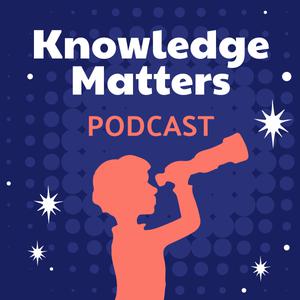
The Knowledge Matters Podcast
Knowledge Matters Campaign
The "Knowledge Matters Podcast", produced by the Knowledge Matters Campaign, is a thought-provoking and engaging exploration of the vital role of knowledge-building in education. Each season delves into the pressing issues, innovative ideas, and transformative solutions shaping the future of education, and is a must-listen for educators, administrators, parents, and anyone with an interest in the evolving landscape of learning.
- 25 minutes 37 seconds“It was like fireworks, right?!” | Know Better, Do Better
Explorers boldly venture into unfamiliar worlds, where confidence, curiosity, knowledge, and persistence are rewarded. When students approach texts like explorers, they bring these same qualities to the task—a mindset cognitive scientists call the “standard of coherence.” Such reading is purposeful, engaging, and expands the reader’s horizons. Reading anywhere, anytime is not just doable. It’s joyful.
In this episode, hosts David and Meredith Liben discuss the key ingredients that power persistent reading and support students to apply the “standard of coherence” mindset when they read, including how the standard of coherence and related practices helped students accelerate their literacy development at the Libens’ NYC school.
The notion of “coherence” sets a high bar for a reader’s expectations of their abilities and the text. They expect that it will make sense, and if it doesn’t, they will know what to do. With this mindset, students immediately apply practiced strategies to comprehend a text: closely read and reread, account for and explain what they know and don’t know, and use evidence from the text to back up those assertions and ideas. Expert Margaret McKeown talks about the key role comprehension monitoring plays in the process.
The Libens then talk with three teachers who have experienced new curriculum and helped students develop the standard of coherence in their classrooms:
- Fifth-grade teacher Sean Morrisey, who discusses strategies to preview texts and build fluency (spoiler alert: spend time with books, not screens)
- Patty Collins, a teaching veteran, compares her work as a watercolor painter to how she creatively engages students within the EL Education reading curriculum (which she calls “my medium”)
- Third-grade teacher Staci McDougall, who discusses how she and her students have grown, by changing classroom practice and building stamina and comprehension
David and Meredith also talk about the importance of building stamina to engage with texts. By giving students time to read closely and persist through comprehension strategies, like providing textual evidence, they can become strong and steady readers who can keep focused on complexities over time.
For more information about this episode, visit the Knowledge Matters Podcast website. The research, studies and artifacts mentioned are posted on the Knowledge Matters Campaign curriculum review tool.
This podcast is produced by the Knowledge Matters Campaign and StandardsWork. Follow the Knowledge Matters Campaign on Twitter, Instagram and Facebook. Search #knowledgematters and join this important conversation. If you'd like to get in touch with David and Meredith, you can contact them through their website, readingdoneright.org.
Production by Tressa Versteeg. Original music and sound engineering by Aidan Shea. Narration recorded at Bamboo Recording Studios.
19 November 2024, 11:00 am - 27 minutes 7 seconds“These texts were just oozing information” | Know Better, Do Better
Have you ever read something and then realized you didn’t totally understand it? That’s the hallmark of a challenging text, and it’s something students encounter all the time.
In this episode, David and Meredith Liben discuss three ways to connect students with sophisticated texts, even if they can’t yet read or comprehend them on their own: juicy sentences, explain your answer, and structured journaling.
First, linguist and language scholar Lily Wong Fillmore shares the origin story of her “juicy sentences” strategy, where teachers divide content-rich sentences into “chunks” and help students build vocabulary and knowledge through focused instruction and discussion.
The Libens then share personal examples of two other instructional techniques that foster reading comprehension and the metacognition that supports its growth: explaining the answer and structured journaling.
Explaining the answer is just that: asking students to answer a question and explain their response using evidence from the text. The magic lies in choosing questions based on a careful pre-read of the text at hand, not a learning standard. Students learn to identify what they do and don’t understand, and then practice returning to the text to re-read.
Finally, the Libens discuss structured journaling, where a teacher chooses an important section of the text and students respond to four questions:
- What are the most important ideas here?
- What don't I understand?
- How does this connect to what we've been discussing in class - or other texts that we've been reading?
- Do you have any reflection (aka ‘I wonder’) questions?
These techniques focus students on the text while also helping them expand their thinking about what they have read. For example, David recalls how a second-grade student wondered why the author of The Tale of Despereaux described certain settings as light and dark, which sparked a class wide discussion about symbolism.
The discussion probes connections between these classroom techniques and cognitive science. Rachel Stack, a former teacher at the school the Libens started and now at Great Minds, shares a compelling story about how she worried her students would get tired of explaining their answers, but they never did.
For more information about this episode, visit the Knowledge Matters Podcast website. The research, studies and artifacts mentioned are posted on the Knowledge Matters Campaign curriculum review tool.
This podcast is produced by the Knowledge Matters Campaign and StandardsWork. Follow the Knowledge Matters Campaign on Twitter, Instagram and Facebook. Search #knowledgematters and join this important conversation. If you'd like to get in touch with David and Meredith, you can contact them through their website, readingdoneright.org.
Production by Tressa Versteeg. Original music and sound engineering by Aidan Shea. Narration recorded at Bamboo Recording Studios.
12 November 2024, 11:00 am - 25 minutes 12 seconds“Learning to read is a social experience” | Know Better, Do Better
How do actual teachers and students “center the text” in reading classrooms? In this episode, David and Meredith Liben get specific with teachers and experts about how read alouds and close reading can connect students of all ages and literacy levels to a text—and to one another.
Two ideas animate the discussion. First, theory is not terribly helpful without practice. And second, learning to read is (and should be!) a social experience.
First, the Libens explore the power of read alouds with three guests, who share real-life examples of interactive ways to engage students with a variety of needs:
- Inclusive classrooms: Patty Collins teaches third and fourth graders reading from the 1st to the 99th percentile. She uses several models of read alouds to give all of her students access to grade-level text, including whole-class, mixed and leveled small groups, and audiobook technology.
- Early learners: Reading and vocabulary expert Margaret McKeown focuses young students on words—not pictures—during read alouds, and avoids leading questions. Teachers can read short passages without showing pictures and ask students “What's going on there?” or “What was that all about?”
- Multilingual students: Desiree Garcia teaches in a bilingual kindergarten classroom where read alouds have fueled an explosion in her students’ vocabulary in both languages. They are excited to share their own ideas and figure out answers by themselves.
Then, the Libens talk through close reading, where students read a passage multiple times and carefully find the connections and structure that move a text forward. This starts with teachers reading the text themselves, finding what Meredith calls the “sticky parts,” leading a focused discussion on why these passages are particularly important.
Two guests share their experience with close reading:
- Kyair Butts, a former Baltimore City teacher of the year, uses close reading to give his middle-school students multiple “at bats” that build knowledge and improve vocabulary. He has students annotate the text to leave tracks of their thinking and see how their thinking evolves.
- Upper elementary teacher Katie Scotti says close reading is “leveling the playing field” between her higher- and lower-achieving students. Reading a text multiple times, and ensuring all students are familiar with the relevant vocabulary and background knowledge, gives every student the chance to understand and talk about a text, including higher-order ideas. While she was worried her students would be bored by close reading, she’s found just the opposite. Kids love it!
Key quote: “Every student has that access to that same text. They might have different levels of questions, they might be doing some noticing and wondering while other students are doing a deeper level of analysis. But they're all experiencing the same characters, the same plot. They’re all experiencing the same reactions. . . and all students deserve to have that experience. Reading is a social experience.” (Scotti)
For more information about this episode, visit the Knowledge Matters Podcast website. The research, studies and artifacts mentioned are posted on the Knowledge Matters Campaign curriculum review tool.
This podcast is produced by the Knowledge Matters Campaign and StandardsWork. Follow the Knowledge Matters Campaign on Twitter,
29 October 2024, 10:00 am - 24 minutes 49 seconds“The tail is wagging the dog” | Know Better, Do Better
When’s the last time you finished a chapter of a book and thought, “Hmmm, what was the main idea?” Competent readers don’t ask themselves this question. They’re too busy focusing on the text itself, not the component strategies that help us understand them.
But that’s not how traditional curriculum and instructional practices work. Instead, they teach reading through a strategy-first approach that focuses on skills like making inferences and predictions, not the text itself.
In this episode, David and Meredith Liben explore what Meredith calls “the tail wagging the dog” in reading comprehension, including examples from personal experience, insights from research, and stories of how they learned to do things differently. The Libens also highlight the costs of a strategy-first approach: missed opportunities for students to engage deeply with the ideas and implications of a text, and activity prompts that ask kids to check their brains at the door as they complete inauthentic exercises.
Two guests join the conversation:
- Literacy expert Margaret McKeown discusses how strategy-focused instruction is still all too common in classrooms. It’s tangible–and is doomed to fail.
- Fifth-grade teacher Sean Morrissey shares his firsthand experience piloting two ELA curriculums - one that centers on novels and read-alouds, and one that uses book excerpts on a common theme and tests on target strategies. The differences are stark.
Finally, the conversation turns to a habit of mind the Libens will discuss later in the season: the standards of coherence. This is a habit of mind where a reader expects they will understand a text, and if it doesn’t make sense, they go back and do the mental work needed to make meaning from what they are reading.
For more information about this episode, visit the Knowledge Matters Podcast website. The research, studies and artifacts mentioned are posted on the Knowledge Matters Campaign curriculum review tool.
Key quote: “I want kids to know what a summary is, what an inference is. But I wouldn't say, ‘Hey, kids, today we're gonna learn to do a summary.’ What I would do is: in a discussion, if a student gave a summary of a piece of text, I would say, ‘Very nice, you gave us a good summary of that, and move on.” (McKeown)
This podcast is produced by the Knowledge Matters Campaign and StandardsWork. Follow the Knowledge Matters Campaign on Twitter, Instagram and Facebook. Search #knowledgematters and join this important conversation. If you'd like to get in touch with David and Meredith, you can contact them through their website, readingdoneright.org.
Production by Tressa Versteeg. Original music and sound engineering by Aidan Shea. Narration recorded at Bamboo Recording Studios.
22 October 2024, 10:00 am - 30 minutes 18 seconds“Teachers are time poor” | Know Better, Do Better
Imagine reading a story about a trial, but not knowing the meaning of “indicted” or “exonerated.” Without a lot of determination and a dictionary, you’d be lost. The knowledge and vocabulary readers bring to a text substantially determine how readily they comprehend it–a fact that’s just as relevant in ELA as it is in social studies and science class.
In this episode, David and Meredith Liben walk us through the relevant research and talk with three teachers whose innovative practices intentionally build vocabulary and knowledge across subjects:
- Erin Hanrahan, an 8th-grade ELA teacher who makes time for vocabulary-building exercises before students dive in to books on real-world issues
- Sean Morrisey, a 5th-grade teacher who includes vocabulary lessons that purposefully relate to multiple subjects throughout the school day
- Staci McDougall, a 3rd-grade teacher who leads close reads of challenging texts, then uses students’ love of multimedia to put new vocabulary to use
David and Meredith also discuss the difference between topics and themes. Many teachers may approach these as interchangeable opportunities to connect texts across a unit. But reading a series of texts on a single topic, such as immigration, the solar system, or sea mammals, yield greater Tier 2 vocabulary growth than reading texts connected by a shared theme, like friendship, loyalty, and survival.
This episode talks about influential research regarding the longer-term benefits of reading and comprehension. In their article What Reading Does for the Mind, Anne E. Cunningham and Keith E. Stanovich report that all kids—no matter their reading level—benefit from a volume of reading. And cognitive psychologist Chuck Perfetti has shown that the more a reader knows about a word (its spelling, orthography, pronunciation), the more likely they are to be a successful comprehender.
And finally, this episode talks joy! The teachers featured in this episode share specific examples linking better student comprehension with love for words and reading.
The research and artifacts mentioned in this episode are all posted on the Knowledge Matters Podcast website.
Key Quote: “If my students are learning ‘sh’ - like the ‘-tion’ sound, I'm purposely picking Tier 2 words like ‘ambition’ or picking words that come up in science, like ‘conservation,’ and in social studies, ‘segregation.’ . . It’s more of an efficient way for kids to learn.” (Morrisey)
This podcast is produced by the Knowledge Matters Campaign and StandardsWork. Follow the Knowledge Matters Campaign on Twitter, Instagram and Facebook. Search #knowledgematters and join this important conversation. If you'd like to get in touch with David and Meredith, you can contact them through their website, readingdoneright.org.
Production by Tressa Versteeg. Original music and sound engineering by Aidan Shea. Narration recorded at Bamboo Recording Studios.
15 October 2024, 10:00 am - 28 minutes 24 seconds"The kids are not all right" | Know Better, Do Better
In today’s reading classrooms, too many kids are not alright. One of the biggest challenges is comprehension–or rather, its absence. Students don't understand what they read well enough to think deeply, connect what they are learning to the wider world, and prepare for the futures they want.
On this episode, hosts David and Meredith Liben break down reading comprehension: they explain what it is and how it works in the mind of the reader, based on cognitive science. They map this understanding to the classroom experience and share specific ways to support children to read and understand texts. Guests Margaret McKeown and Rachel Stack join the conversation and explain why centering the text is the cornerstone to comprehension.
McKeown, one of the originators of Tier 1, Tier 2, and Tier 3 vocabulary, talks about why centering the text is more important than a series of comprehension strategies. Stack, a former teacher and co-creator of Wit & Wisdom, describes a critical moment in her classroom: seeing her students mine the text for understanding. This episode ends with an excerpt from a discussion the Libens had with a dozen school district leaders, hosted by Curriculum Matters.
The research and artifacts mentioned in this episode are all posted on the Knowledge Matters Podcast website.
Key quote: “We want them in the text all the time, thinking about the text, and what they have to do to make sense of that text. That's really the heart of it.” (McKeown)
This podcast is produced by the Knowledge Matters Campaign and StandardsWork. Follow the Knowledge Matters Campaign on Twitter, Instagram and Facebook. Search #knowledgematters and join this important conversation. If you'd like to get in touch with David and Meredith, you can contact them through their website, readingdoneright.org.
Production by Tressa Versteeg. Original music and sound engineering by Aidan Shea. Narration recorded at Bamboo Recording Studios.
15 October 2024, 9:00 am - 3 minutes 52 secondsIntroducing Season 2: Know Better, Do Better: Comprehension
Season 2 of the Knowledge Matters Podcast is coming soon! Teachers and reading experts David and Meredith Liben host “Know Better, Do Better: Comprehension,” a six-part podcast series based on their book of the same name.
With their signature charm and straight talk, David and Meredith take on an urgent problem in American schools today—kids not understanding what they read—and how reading comprehension can be taught more effectively.
Over six digestible episodes, David and Meredith explore how comprehension works in the mind of the reader, the roles of building knowledge and vocabulary, the importance of reading language-rich, grade-level texts, and how text-centered classroom instruction is the key to students’ confidence and reading comprehension. The series features a range of teachers and expert voices, like Margaret McKeown and Lily Wong Fillmore, as well as practical ideas for classroom implementation.
Episodes 1 and 2 drop October 15, 2024!
For more information, visit the episode webpage on the Knowledge Matters Podcast website.
This podcast is produced by the Knowledge Matters Campaign and StandardsWork. You can learn more about our work at www.knowledgematterscampaign.org and follow us on Twitter, Instagram and Facebook. Search #knowledgematters and join this important conversation. If you'd like to get in touch with David and Meredith, you can contact them through their website, readingdoneright.org.
Production by Tressa Versteeg. Original music and sound engineering by Aidan Shea. Narration recorded at Bamboo Recording Studios.
8 October 2024, 10:00 am - 36 minutes 38 seconds“Think what a better society we’ll have" | Reading Comprehension Revisited
American education has a number of serious problems – and our failure to start building kids' knowledge early is a fundamental one. By now you know that reading comprehension is complicated and as you’ll hear, so is the explanation for what has gone wrong with the way American schools have approached it.
In the sixth and final episode of "The Knowledge Matters Podcast: Reading Comprehension Revisited", Natalie will explain how we ended up in a place it’s not clear anyone wanted to go, in the grip of a reading crisis that goes far beyond the important issue of how we teach students to decode. Not only do two thirds of students test below the proficient level in reading, many Americans lack vital knowledge about the world they live in. For example, scores on national tests in American History hit a new low in 2022: only 14% of eighth graders scored proficient or above, and 40% scored below the "basic" level. Scores in civics are only slightly better. And students don’t necessarily learn more about these subjects after eighth grade: one survey, for example, found that 11% of US adults haven't heard of or aren't sure if they've heard of the Holocaust. For millennials, the figure is 22%.
Closing knowledge gaps is important for several reasons. It's important for the untold numbers of students whose potential remains to be unlocked – students who might otherwise go through school and life, feeling like they’re failures, when in fact it's the system that has failed them. It's important for society, which will otherwise be deprived of those students’ potential. And it's important for democracy, which depends on a citizenry that can understand the world well enough to make informed decisions.
Because, as Spring Cook, the educator you met in Episode 1 put it:
It is a matter of equity, it's a matter of democracy, and when we're able to give students those skills and that knowledge at an early age, then think what a better society will have.
For more information about the information in this episode, visit the episode webpage on the Knowledge Matters Podcast website.
This podcast is produced by the Knowledge Matters Campaign. You can learn more about our work at www.knowledgematterscampaign.org and follow us on Twitter, Instagram and Facebook. Search the #knowledgematters and join this important conversation. If you'd like to get in touch with Natalie, you can contact her through her website, www.nataliewexler.com.
Production by Sarah Gilmore and Aidan Shea. Original music and sound engineering by Aidan Shea. Narration recorded at Bamboo Recording Studios.26 July 2023, 6:00 am - 29 minutes 25 seconds“Everything was in silos” | Reading Comprehension Revisited
So far in "The Knowledge Matters Podcast: Reading Comprehension Revisited", we've heard from classroom teachers about their experiences making the shift from the standard approach to reading comprehension – which focuses on having kids practice supposedly general skills like “finding the main idea” – to a newer approach. That new approach involves building children's knowledge of the world so they can better understand what they're reading. In this episode, we'll look at the experience of shifting to the new approach from the perspective of a school or district leader.
Educators who have been through that shift say that strong leadership is crucial. Teachers can do a lot to build students’ knowledge within their own classrooms, but they can't control what's happening in the classroom next door. And to become fully literate, many students need a curriculum that builds knowledge in a logical, coherent way across grade levels. Only a leader can put that kind of system in place.
In this episode you’ll meet two leaders who’ve done exactly that: Brent Conway – Assistant Superintendent in Pentucket, MA, and Dr. LaTonya Goffney – Superintendent of the Aldine Independent School District, TX. Brent and LaTonya will talk about what motivated them to initiate the change, how they navigated the challenges, and what they saw happen in classrooms after the switch. Change is hard, but, as you’ll hear in this episode, it can be worth the effort.
For more information about the information in this episode, visit the episode webpage on the Knowledge Matters Podcast website.
This podcast is produced by the Knowledge Matters Campaign. You can learn more about our work at www.knowledgematterscampaign.org and follow us on Twitter, Instagram and Facebook. Search #knowledgematters and join this important conversation. If you'd like to get in touch with Natalie, you can contact her through her website, www.nataliewexler.com.
Production by Sarah Gilmore and Aidan Shea. Original music and sound engineering by Aidan Shea. Narration recorded at Bamboo Recording Studios.19 July 2023, 6:00 am - 25 minutes 8 seconds“Now they had something to write about” | Reading Comprehension Revisited
In the last episode of "The Knowledge Matters Podcast: Reading Comprehension Revisited", you heard from three teachers – Abby, Deloris, and Kyair – who talked about their experiences using some of the knowledge-building literacy curricula that have recently been developed. In Episode 4, you’ll hear from them again, and you’ll meet Cassidy Burns, a 3rd grade teacher from Louisiana. They describe how these newer curricula incorporate writing instruction, and how that differs from the standard approach.
In the standard approach to literacy, writing is often kept separate from reading, just as both of those things are kept separate from building students' knowledge of the world. When it's time for writing, students generally drop whatever they've been learning about, and try to respond to a disconnected writing prompt about, for example, a personal experience, or a topic in a separate writing curriculum with its own content. But the evidence indicates that students learn best when reading and writing are connected to each other. And both should be connected to a curriculum that is rich in content.
Writing instruction can be a game changer at all grade levels. It can help identify the misunderstandings or gaps in background knowledge that are preventing students from doing grade level work and also make it easier for students to learn and retain new information. As Abby, Deloris, Kyair, and Cassidy will tell you, it is not only possible to teach writing this way, it’s preferable – for students and for teachers. In this episode you’ll hear how knowledge-building has changed their approach to teaching writing, and the difference it made in their classrooms.
For more information about the information in this episode, visit the episode webpage on the Knowledge Matters Podcast website.
This podcast is produced by the Knowledge Matters Campaign. You can learn more about our work at www.knowledgematterscampaign.org and follow us on Twitter, Instagram and Facebook. Search #knowledgematters and join this important conversation. If you'd like to get in touch with Natalie, you can contact her through her website, www.nataliewexler.com.
Production by Sarah Gilmore and Aidan Shea. Original music and sound engineering by Aidan Shea. Narration recorded at Bamboo Recording Studios.12 July 2023, 6:00 am - 31 minutes 33 seconds“That cloud looks like an anvil” | Reading Comprehension Revisited
In Episode 3 of "The Knowledge Matters Podcast: Reading Comprehension Revisited" you’ll hear from three teachers who’ve experienced the before and after of the shift to using a knowledge-building curriculum in their classrooms.
Abby Boruff, Deloris Fowler, and Kyair Butts are three classroom teachers who are, in some ways, very different. They teach different ages, and different subjects, in different parts of the country, but in other ways they have a lot in common. All three were skeptical when their schools switched to new knowledge-building literacy curricula. Curricula like these give all children in the classroom access to the same complex, grade-level texts, building their knowledge and vocabulary through read-alouds and discussion, instead of limiting them to books they can decode themselves.
At first Abby, Deloris, and Kyair worried that the curriculum would be too challenging, too restrictive of their autonomy, or that the topics wouldn’t interest their students. And, the biggest challenge of all, as Deloris explains, was not understanding “the why” of the changes they were making. But once they saw the dramatic benefits for their students, that “why” became clear and all three came to embrace a new approach to teaching literacy.
For more information about the information in this episode, visit the episode webpage on the Knowledge Matters Podcast website.
This podcast is produced by the Knowledge Matters Campaign. You can learn more about our work at www.knowledgematterscampaign.org and follow us on Twitter, Instagram and Facebook. Search #knowledgematters and join this important conversation. If you'd like to get in touch with Natalie, you can contact her through her website, www.nataliewexler.com.
Production by Sarah Gilmore and Aidan Shea. Original music and sound engineering by Aidan Shea. Narration recorded at Bamboo Recording Studios.5 July 2023, 6:00 am - More Episodes? Get the App
Your feedback is valuable to us. Should you encounter any bugs, glitches, lack of functionality or other problems, please email us on [email protected] or join Moon.FM Telegram Group where you can talk directly to the dev team who are happy to answer any queries.
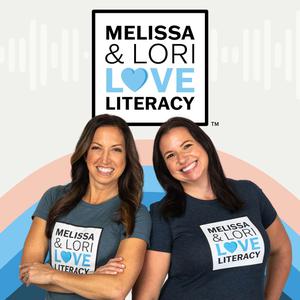 Melissa & Lori Love Literacy ™
Melissa & Lori Love Literacy ™
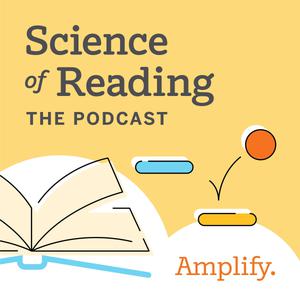 Science of Reading: The Podcast
Science of Reading: The Podcast
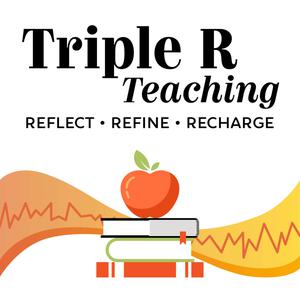 Triple R Teaching
Triple R Teaching
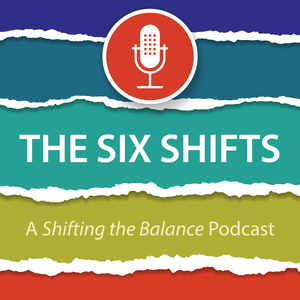 The Six Shifts
The Six Shifts
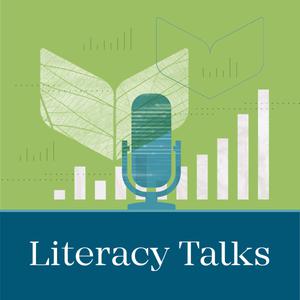 Literacy Talks
Literacy Talks